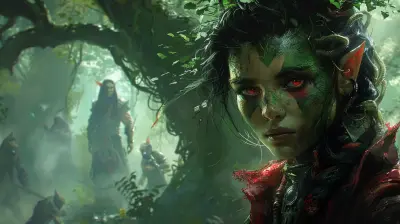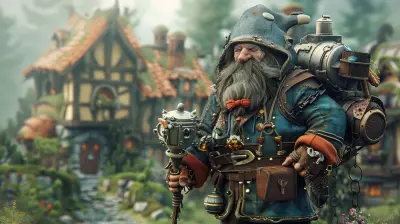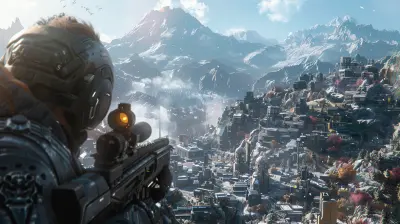The Role of Music in Enhancing Nintendo’s Gameplay Experience
5 August 2025
Ever played a Nintendo game where the music got stuck in your head for days? Yeah, we’ve all been there. Think of that classic Super Mario Bros. theme—instantly recognizable, right? But Nintendo’s use of music goes far deeper than catchy tunes. It’s an unsung hero working behind the scenes to shape your emotions, guide your gameplay, and fully immerse you in a virtual world.
In this post, we’re diving deep into the role of music in enhancing Nintendo’s gameplay experience. We’ll look at how melodies set the mood, how rhythms guide your actions, and why Nintendo is a true maestro in using soundtracks as an emotional and gameplay tool. So turn up the volume, and let’s get into it!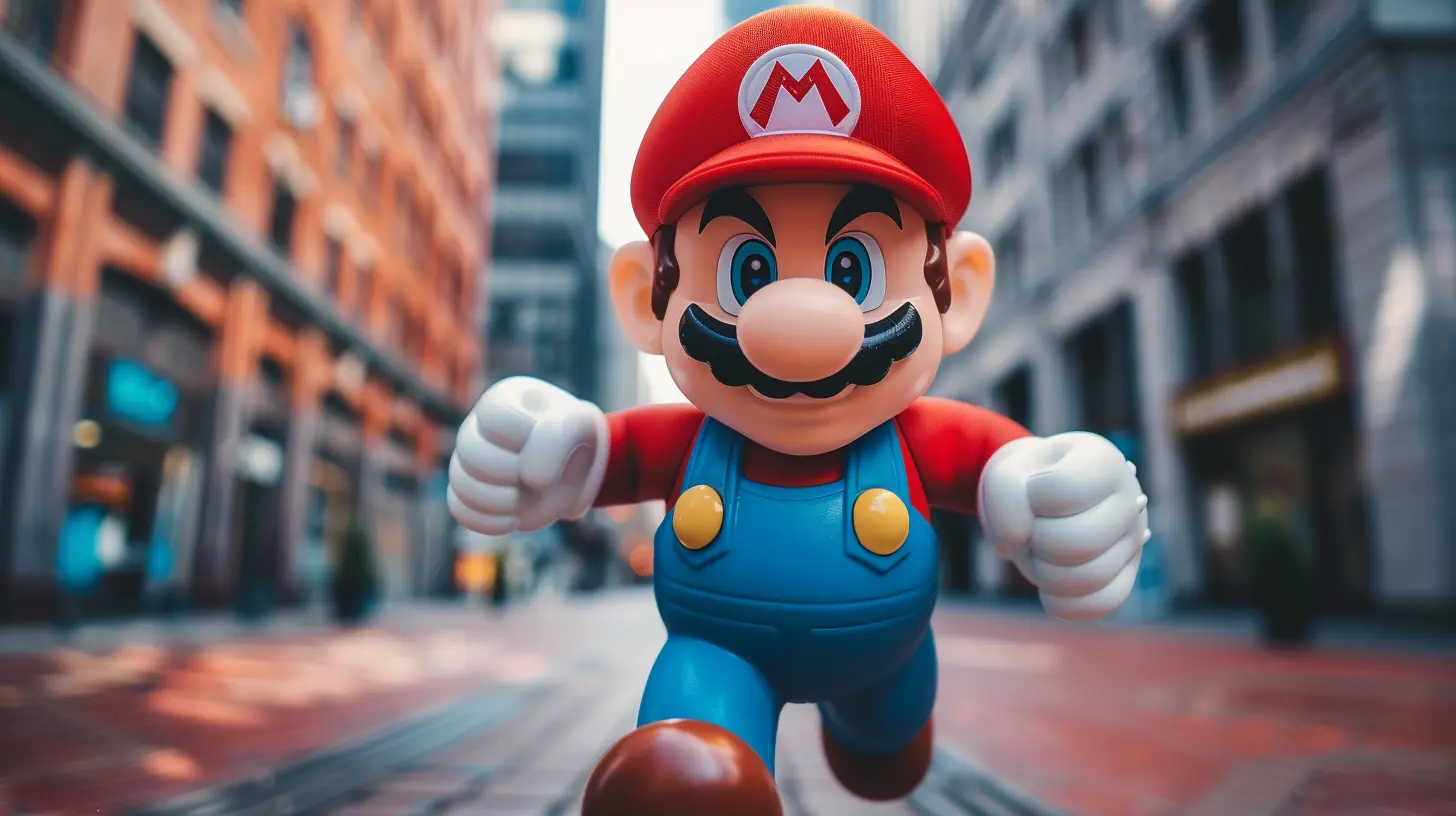
Music: The Invisible Player in Gameplay
Music might not have a controller in its hands, but it’s playing right alongside you. It reacts to your wins, your fails, your dramatic boss fights, and those quiet moments where you're just exploring a forest or wandering through a village. It does all this without saying a word.Nintendo gets that. They don’t just slap on a soundtrack as background noise. They compose music with intention—crafting it to be a living, breathing part of the overall experience. In many ways, the music in a Nintendo game is like the emotional narrator you didn’t know you needed.
Let’s break it down.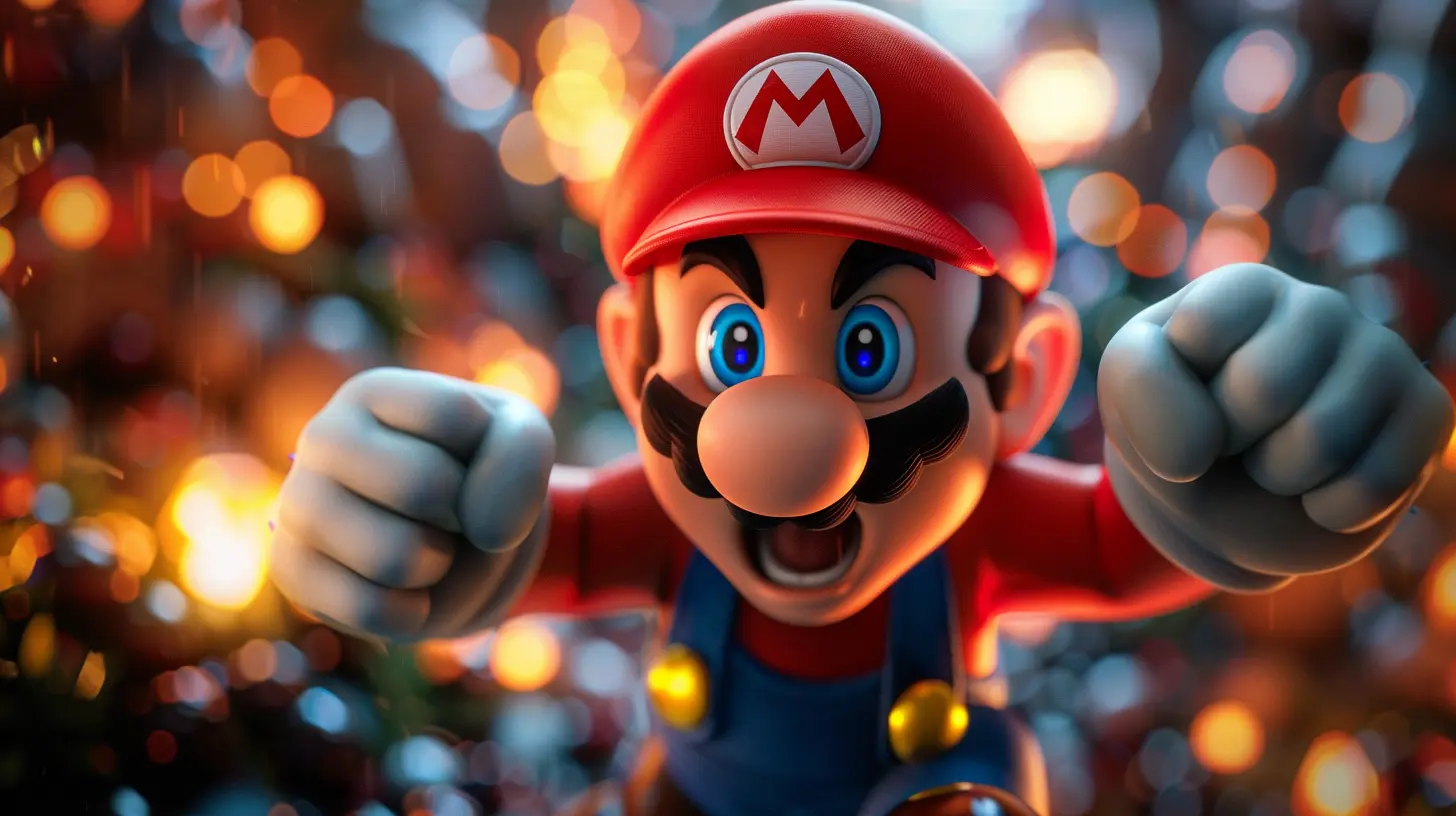
Setting the Tone: Music Builds the Atmosphere
Remember the first time you stepped into Hyrule Field in The Legend of Zelda: Ocarina of Time? The music wasn’t just beautiful—it was expansive, filled with a sense of wonder and adventure. It told you that this world was massive, magical, and ready to be explored.Nintendo’s composers are experts at crafting these soundscapes. Take Koji Kondo, the brilliant mind behind both the Mario and Zelda series. He doesn’t just write catchy tunes—he builds emotional landscapes.
Here’s how it works:
- Game Worlds Feel Alive: Think Animal Crossing. The music changes with the seasons and the time of day. That soft, almost lo-fi music at 2 AM? It makes your quiet late-night fishing trips feel extra cozy.
- Emotional Signaling: When something is about to go down—like a boss fight—the music shifts. Your heart starts racing before the fight even begins. That’s music doing its job, pumping you up or freaking you out.
- Genre Influence: Whether it’s a galactic sweep in Metroid Prime or the upbeat groove in Mario Kart, Nintendo tailors music to match the theme of each game series.
Simply put, Nintendo music tells you how to feel without using a single word.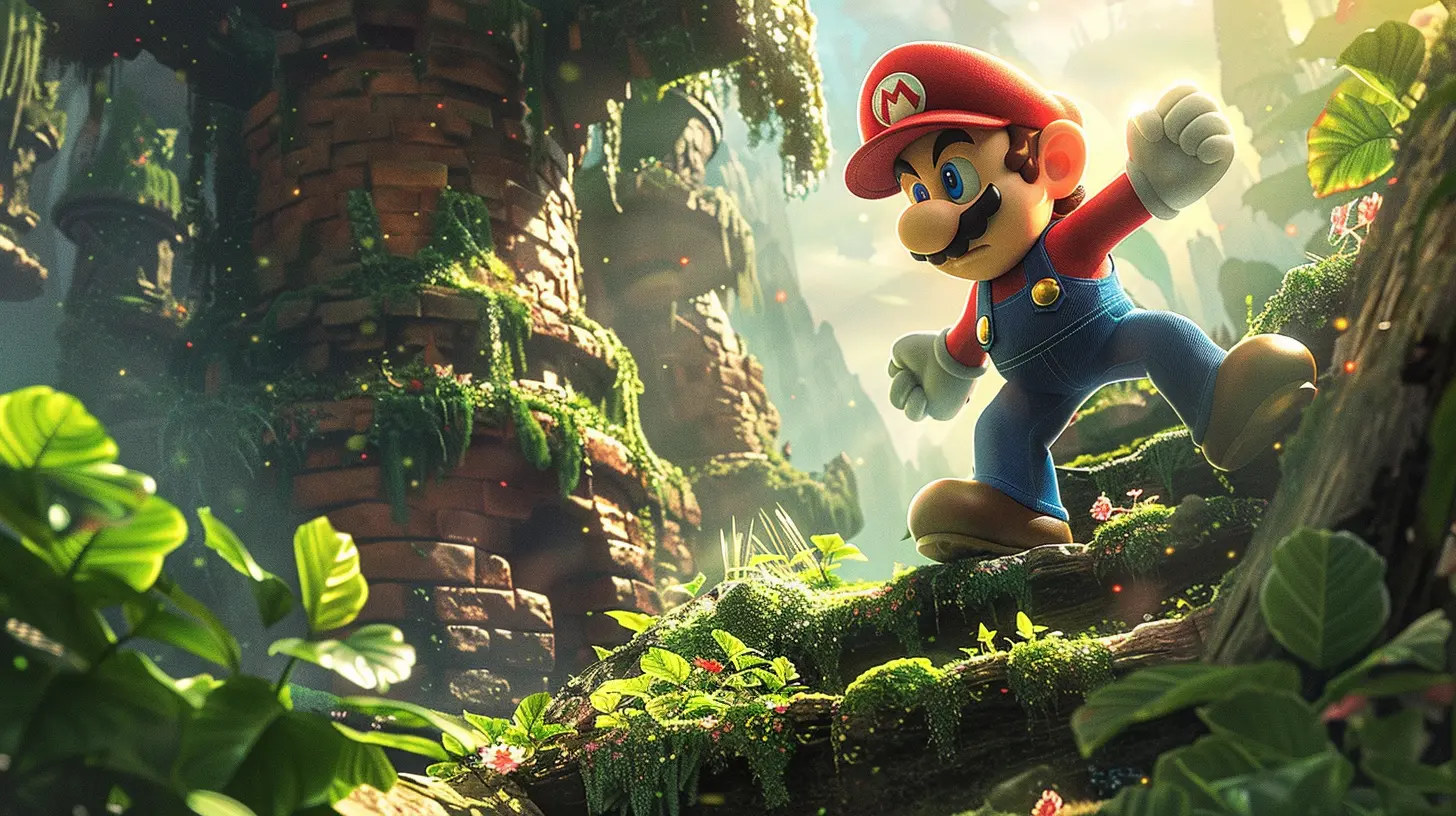
Tonal Variety: From Whimsy to Fear
Nintendo games aren’t just one-note (pun intended). They cover a wide emotional spectrum. And the music shifts just as quickly as the gameplay does.Here are a few examples:
- Super Mario Galaxy: The orchestral score brings an epic, almost movie-like quality that feels grand and dreamy.
- Luigi’s Mansion: It blends eerie melodies with quirky beats to keep things spooky but not nightmare fuel. Think Halloween night—not a horror flick.
- Breath of the Wild: Sparse piano notes leave space for natural sounds, creating an atmosphere of solitude and serenity.
Nintendo doesn't try to hit you over the head with big dramatic scores 24/7. Sometimes less is more. Sometimes the silence between notes says more than a full orchestra ever could.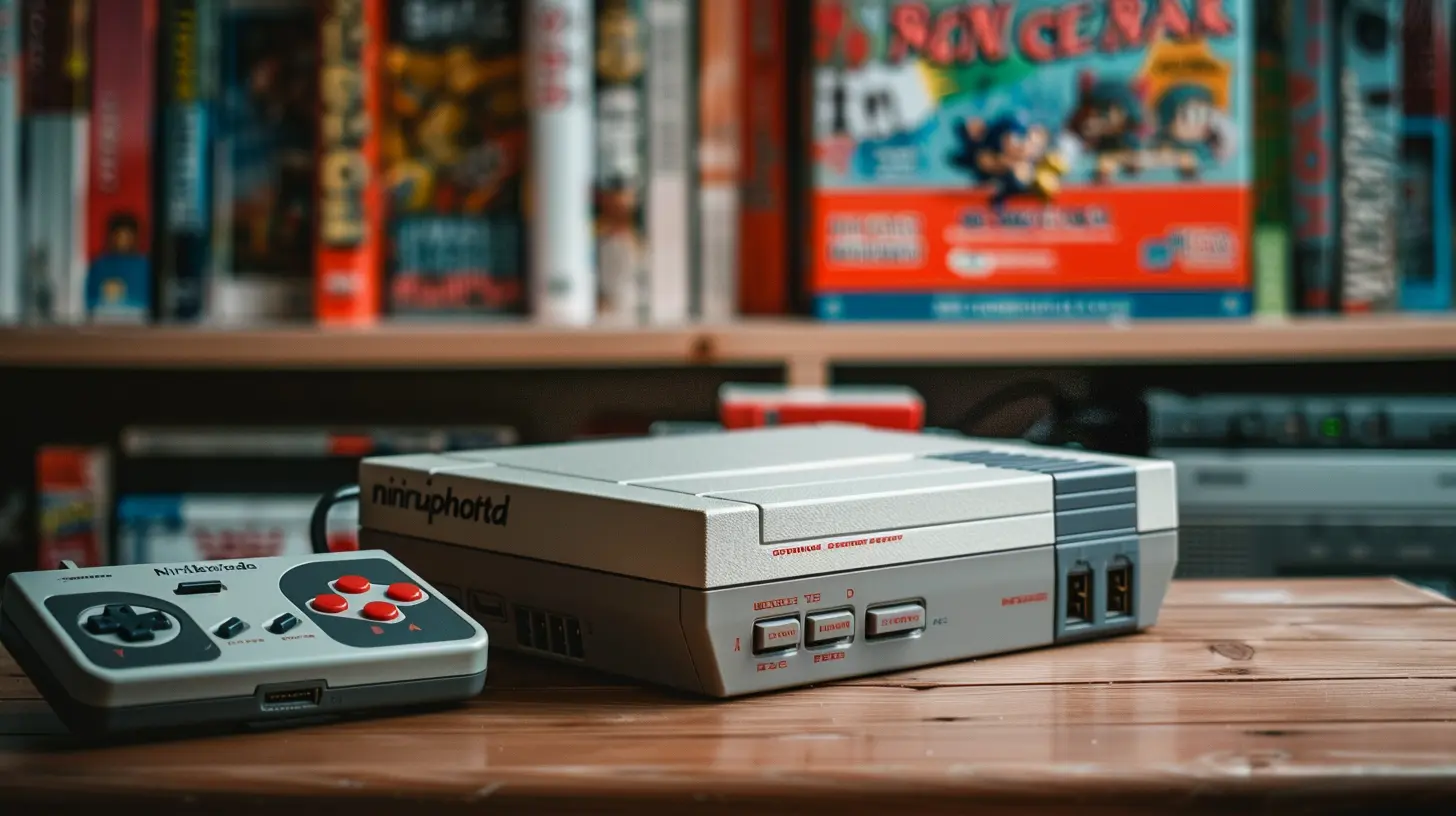
Dynamic Music: The Soundtrack Reacts to You
Ever noticed how the music in some games changes as you play? That’s dynamic music for you—it evolves based on what’s happening in the game. Nintendo loves this trick.Take Legend of Zelda: Breath of the Wild as an example again. You're out exploring and there's soft, ambient music. But the second a Guardian locks its flaming laser eyes on you? Boom! The entire soundtrack shifts into high alert mode. Your pulse picks up, your hands sweat, and it’s game on.
Here’s why that matters:
- It Feels Personal: The game responds to you. It’s like a co-op partner that knows exactly when to raise the tempo.
- It Enhances Immersion: You don’t just see your environment change—you hear it too. Whether you’re gliding from mountaintops or running from Bokoblins, the music shifts to match the scene.
- It Affects Performance: Fast-paced music can actually make your heart race physically, which adds tension and intensity—especially in boss fights.
It’s not magic; it’s smart design. But it sure feels magical.
Iconic Themes: The Power of Nostalgia
Nintendo knows how to make a melody stick. Just listen to any Mario or Zelda theme and try not to hum it later—we dare you.Why does this matter? Because music amps up the nostalgia. And Nintendo, more than almost any other game company, knows how to weaponize that nostalgia in the best way possible.
Reusing and remixing old themes doesn’t feel lazy—it feels like a reunion with an old friend. You hear the updated Mario Underwater Theme in Super Mario Odyssey, and you're instantly back in your childhood living room, eyes glued to the screen.
Nintendo uses music to create emotional continuity across generations. Kids playing Switch today are grooving to updated versions of the same themes their parents played as kids. That’s some serious emotional glue.
The Role of Music in Multiplayer Madness
Music's not just for solo adventures. It plays a key role in multiplayer games too.Think of Mario Kart. The music is upbeat, energetic, and even a little mischievous. It keeps the mood light and fun—even when your so-called "friend" hits you with a Blue Shell just before the finish line.
In games like Super Smash Bros., the music pulls from dozens of franchises and settings. It's a nostalgia-fueled jukebox. It makes every match feel like a celebration of gaming itself.
The result? Music helps multiplayer games feel less competitive and more joyfully chaotic. It builds a party atmosphere even when you're trash-talking on the couch.
Composers Who Deserve a Standing Ovation
Nintendo’s musical greatness didn’t happen by luck. It’s the work of masterminds like:- Koji Kondo – The legend behind Super Mario Bros. and The Legend of Zelda.
- Kazumi Totaka – Known for the music in Animal Crossing and the mysterious “Totaka’s Song” Easter egg.
- Hajime Wakai – Helped bring the rich music of Pikmin and Star Fox to life.
- Yoko Shimomura – Best known for Kingdom Hearts, but she also composed for Mario & Luigi: Superstar Saga.
These composers don’t just write music. They understand gameplay. They know when to pull back, when to escalate, and when to hit you right in the feels.
Interactive Soundtracks: The Future of Nintendo Music?
Let’s dream a little. With advances in tech, future Nintendo games might have even more responsive music systems—ones that shift tones based on decision-making, pacing, or even the player's emotional state (whoa!).Imagine a game that senses your stress level and changes the soundtrack to help calm you—or hype you up. That kind of real-time adaptability isn’t far off.
Nintendo's already dipped its toes into this. Titles like Ring Fit Adventure use tempo and rhythm as gameplay elements. So who knows? Maybe future titles will make music not just part of the atmosphere—but part of the challenge.
Conclusion: More Than Just Background Noise
So, what’s the takeaway from all this?Music in Nintendo games isn’t decoration—it’s design. It helps tell stories, adds emotional depth, and elevates gameplay. Whether it’s guiding your next move or stirring up warm, fuzzy memories, Nintendo’s soundtracks are doing some serious heavy lifting.
So the next time you boot up a Nintendo game, take a second to really listen. You might be surprised by just how much that soundtrack is doing for you behind the scenes.
🎧 Because in the world of Nintendo, music isn’t just heard—it’s felt.
all images in this post were generated using AI tools
Category:
Nintendo GamesAuthor:

Francesca West
Discussion
rate this article
2 comments
Hesper Benton
Ah, Nintendo and their magical melodies! Without that catchy Mario theme, we'd just be a plumber jumping on bricks in awkward silence. Imagine trying to save Princess Peach with only crickets chirping—talk about an emotional letdown! Long live game soundtracks and our sanity! 🎶🕹️
February 9, 2026 at 6:09 AM
Jinx Davis
Oh sure, because nothing says adventure like a catchy Mario tune!
August 14, 2025 at 4:34 PM

Francesca West
Absolutely! Mario's catchy tunes create an immersive experience, enhancing the sense of adventure and nostalgia in gameplay.
